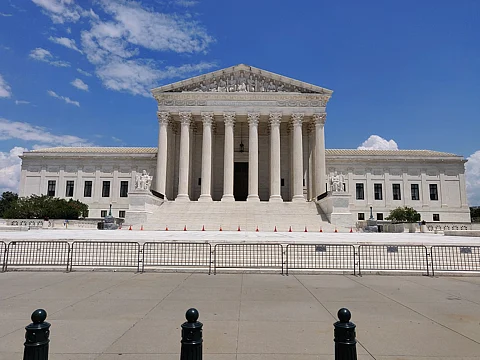

The U.S. Supreme Court on Monday cleared the way for the Trump administration to terminate deportation protections for nearly 350,000 Venezuelan migrants, overturning a lower court’s order that had temporarily preserved their legal status.
The ruling lifts a hold imposed by a federal judge in California, which had maintained Temporary Protected Status (TPS) for Venezuelans whose protections were set to expire last month. TPS allows migrants to live and work legally in the U.S. if their home countries are deemed unsafe due to armed conflict, natural disasters, or other "extraordinary and temporary" conditions.
Venezuelans in the U.S. were first granted TPS in 2021 under the Biden administration, which cited the country’s "complex humanitarian crisis"—marked by severe food shortages, political repression, and collapsing infrastructure—as justification for the protections. Since 2014, nearly eight million Venezuelans have fled their homeland, with hundreds of thousands relocating to the U.S.
The Trump administration sought to terminate TPS for Venezuelans by April 2025, more than a year ahead of its original October 2026 expiration. Government lawyers argued that the California federal court had overstepped by blocking the move, claiming it infringed on the executive branch’s authority over immigration policy.
In an unsigned order, the Supreme Court granted the administration’s emergency request without explanation, as is typical in such cases. Justice Ketanji Brown Jackson was the sole dissenter noted in the ruling.
The decision drew sharp criticism from migrant advocates. Ahilan Arulanantham, an attorney representing Venezuelan migrants, called it "the largest single action stripping any group of non-citizens of immigration status in modern U.S. history."
Cecilia Gonzalez Herrera, a plaintiff in the case, told The Associated Press the ruling would force families into an "impossible position—choosing between survival and stability." Adelys Ferro, a Venezuelan-American activist, condemned the move as a "xenophobic, discriminatory attack against a community fleeing a criminal dictatorship."
Meanwhile, the Department of Homeland Security hailed the decision as a "win for the American people," accusing the prior administration of exploiting TPS to admit "poorly vetted migrants."
The ruling marks the latest in a series of high-stakes immigration battles before the Supreme Court. Last week, the Trump administration asked the court to end humanitarian parole for hundreds of thousands of migrants from Cuba, Haiti, Nicaragua, and Venezuela. However, the administration suffered a setback on Friday when the justices blocked its attempt to use an 18th-century law to expedite deportations in North Texas.
With another major TPS decision looming—this time affecting tens of thousands of Haitians—legal and political clashes over immigration policy show no sign of abating.